18-12-2024 | di COOPI
RDC. Goma: humanitarian support to crisis-affected communities
In Goma, Democratic Republic of Congo, North Kivu, the armed conflict has been violently affecting the lives of men, women and children for years.
Emilia Vavassori, area manager of COOPI - Cooperazione Internazionale in DRC, visited Goma to follow the implementation of the project ‘Multisectoral emergency assistance in the areas of nutrition and education for communities affected by the M23 crisis in North Kivu province’ conducted by COOPI together with the local partner Expertise Humanitaire et Sociale (EHA) thanks to funding from OCHA (United Nations Office for Coordination of Humanitarian Affairs). With her, Famiglia Cristiana journalist Giulia Cerqueti, who reported on the reality of these places in the last issue of the weekly magazine.
Goma, a city on the shores of Lake Kivu, has for years been the scene of between the authorities and the M23 armed group. This situation has generated a dramatic humanitarian crisis affecting the entire region, characterised by severe food shortages, limited access to essential services and violent armed conflicts. More than a hundred armed groups are active in the east of the country, causing massive population displacements on a daily basis. As of September 2024, there were nearly two million internally displaced persons (IDPs) in North Kivu. In this emergency, civilians fleeing armed attacks seek refuge in displaced people's camps around Goma and in Nyiragongo territory.
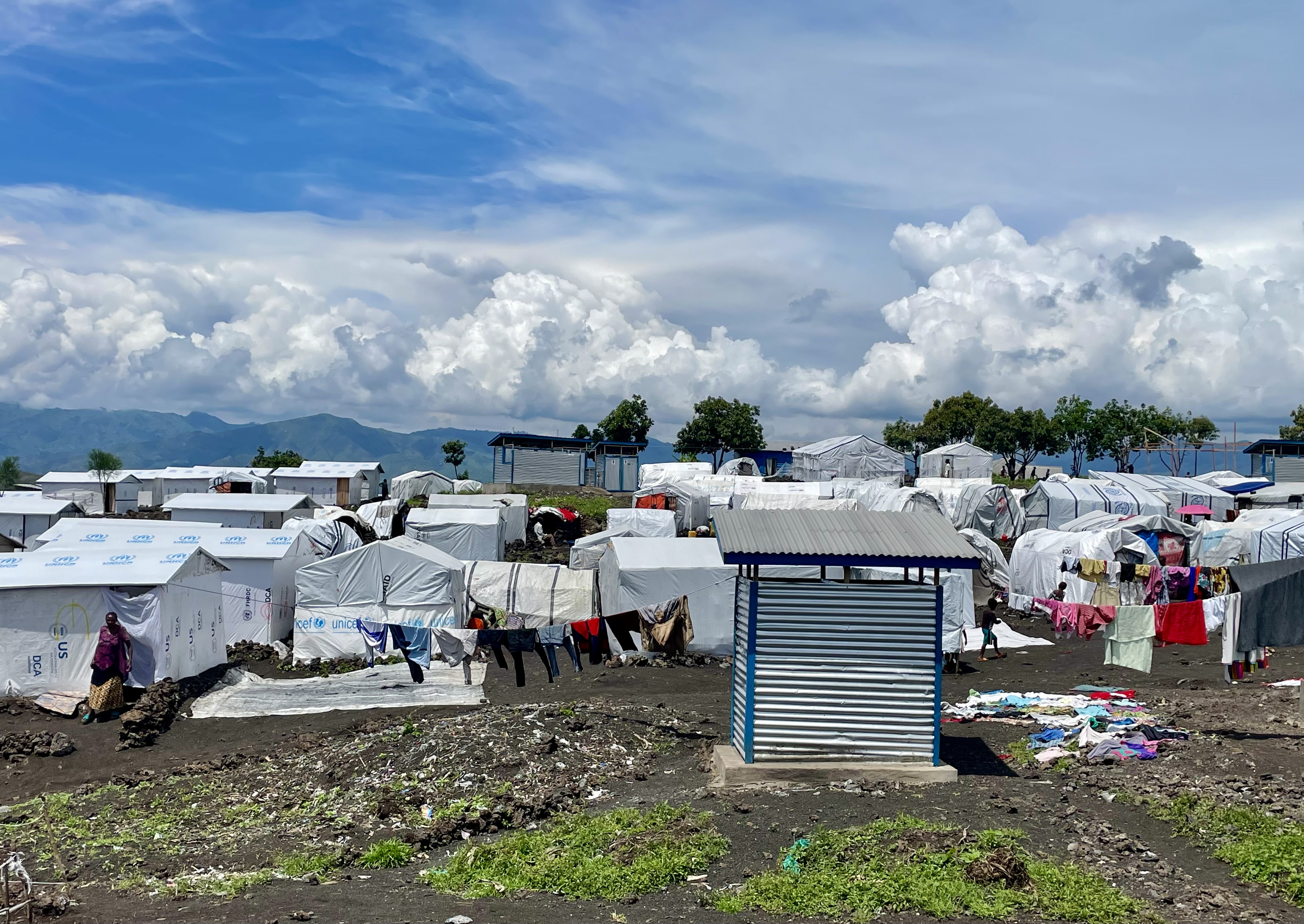
Emilia's visit, accompanied by local COOPI staff - Charlotte Ntagulwangula (nutritionist), Emmanuel Ilunga (head of project) and Clément Nkubizi (head of mission) - begins at the Nutritional Intensive Care Unit of the Nyiragongo Hospital. In this facility, malnourished and hospitalised children receive therapeutic milk of high nutritional value, which is essential to treat their serious condition.
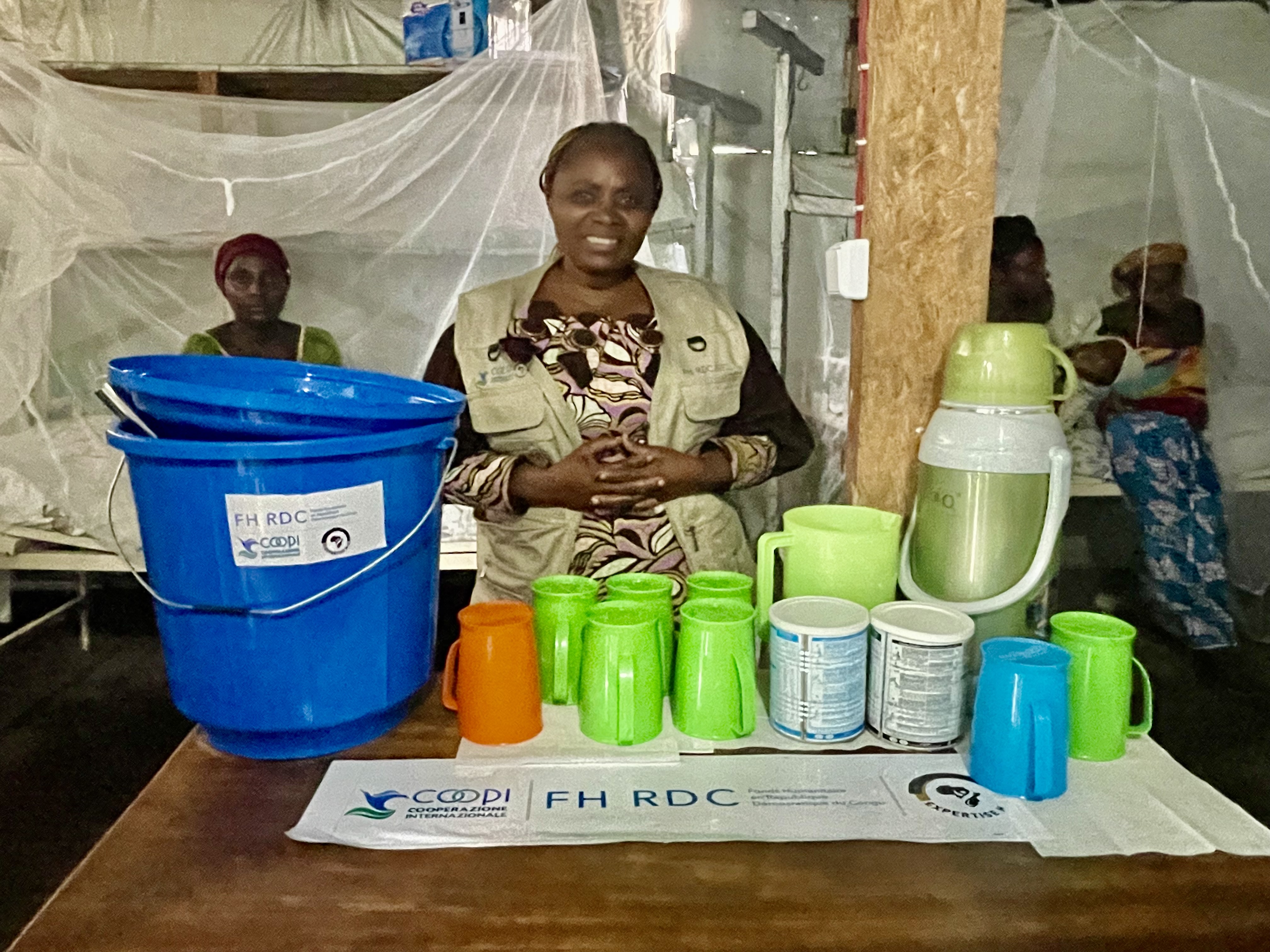
Malnutrition is a dramatically widespread reality in these areas. Therefore, the joint project of COOPI and EHA aims to provide adequate care for 2,310 children under the age of five, including both IDPs and members of host communities, suffering from acute malnutrition.
Here, malnutrition in children is often a direct consequence of a lack of child protection and family support. The situation is further complicated in the case of twins, who require even greater care and resources. This is the case of many single mothers without support, like the one we met, Noela, left without her husband with three children under the age of four. In the mother's absence, the children are frequently left in the care of their grandmothers, who, unable to breastfeed them, find it very difficult to provide them with the necessary nourishment’.
Says Emilia Vavassori.
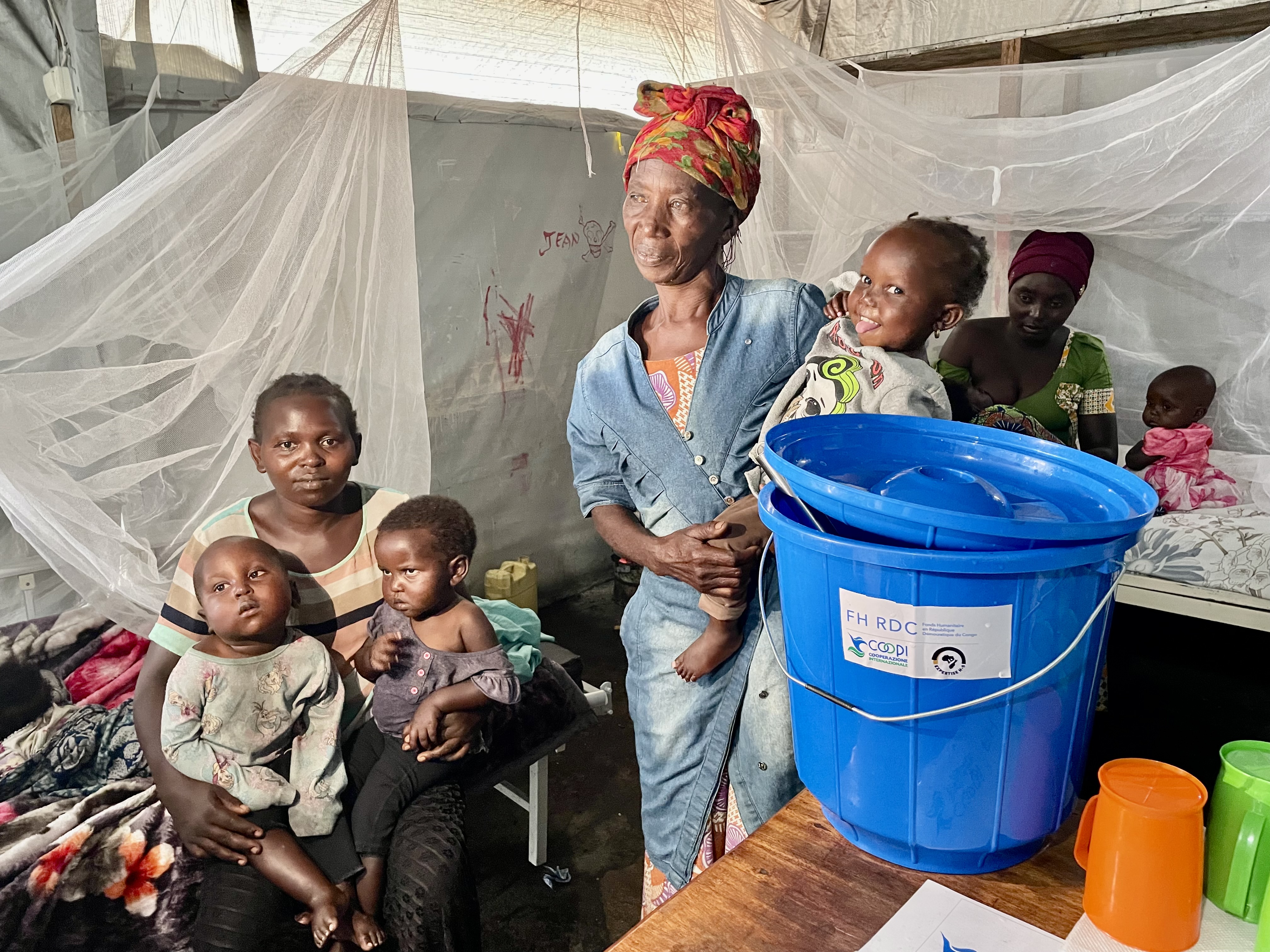
The general hospital in Nyiragongo is a ‘displaced’ hospital. Initially located in an area which is now under rebel control, the health complex has been relocated some twenty kilometres away, to a safer area. Halls follow one another, each housing a different speciality, and people wait in the long open-air corridors.
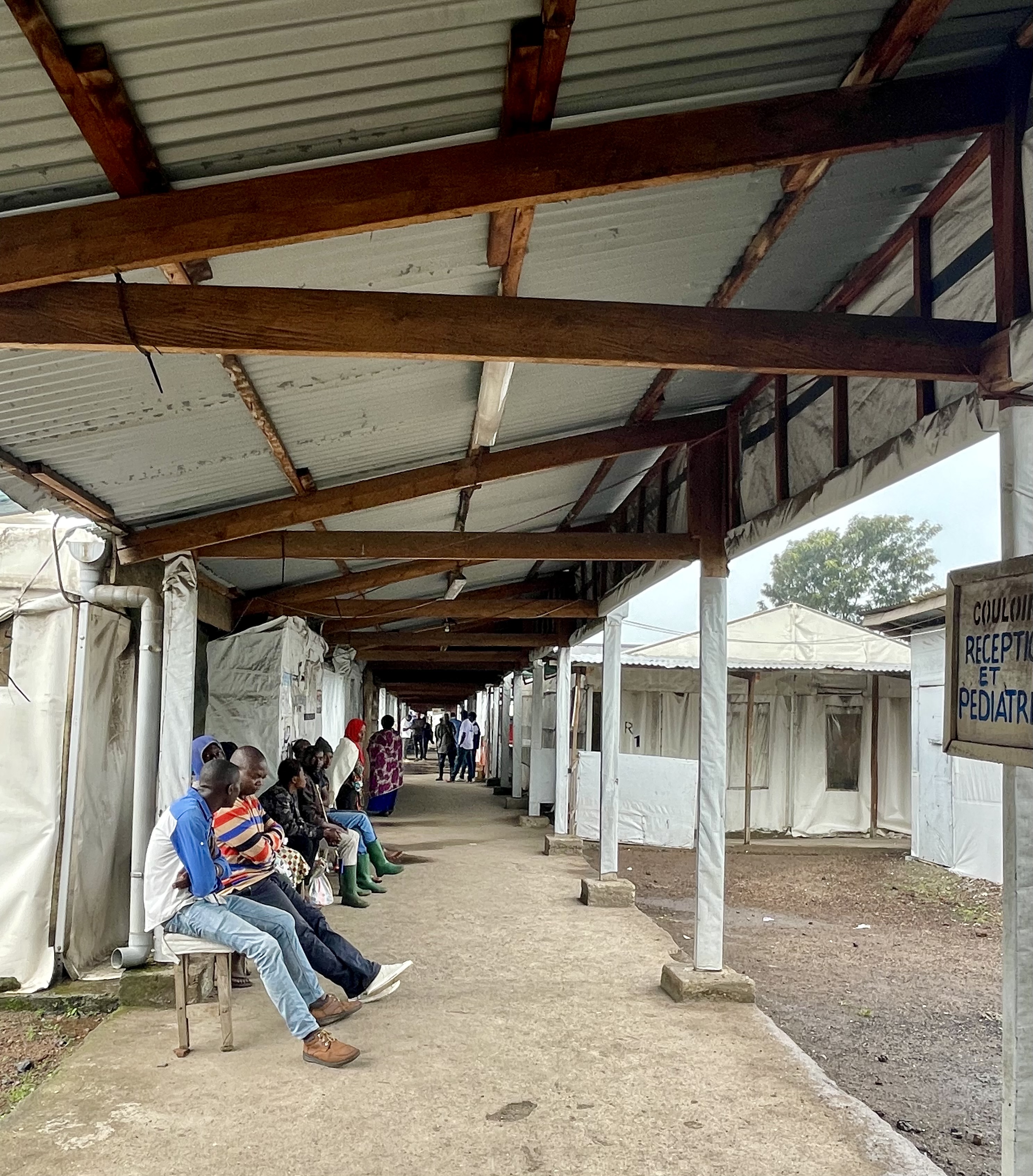
Like the hospital, thousands of people are now displaced and living in temporary tents. Emilia visited one of the refugee camps, Rego, built by the International Organisation for Migration (IOM) and Congolese entities. Here COOPI runs the Baptist school and has built temporary learning spaces. These are wooden cottages designed to house educational lessons, built thanks to the COOPI project and OCHA.
The lessons are taught by two teachers for a group of 120 children at a time who are provided with backpacks, notebooks and teaching materials.’
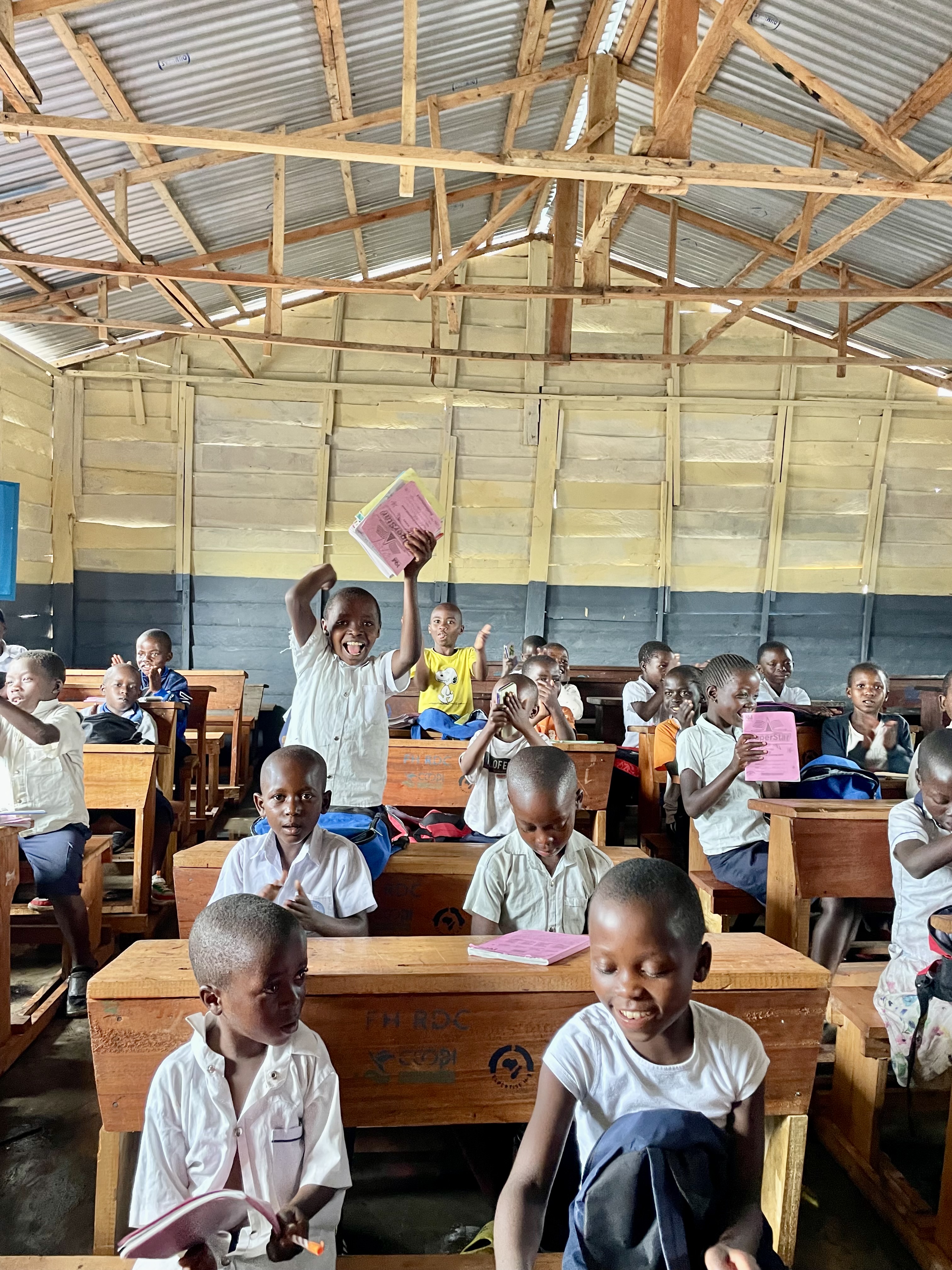
The work of COOPI and its local partners under the ‘Emergency Multi-Sectoral Assistance in Nutrition and Education for Communities Affected by the M23 Crisis in North Kivu Province’ project is an important step towards improving the living conditions of communities affected by the M23 crisis in North Kivu by addressing urgent needs in the areas of nutrition, education and protection.
The aim is to ensure a safe and secure learning environment for more than 2.500 children, particularly supporting the most vulnerable groups, and to improve access to vital nutritional care for children affected by malnutrition.
Photo Credits: Giulia Cerqueti




 Democratic Republic of the Congo
Democratic Republic of the Congo